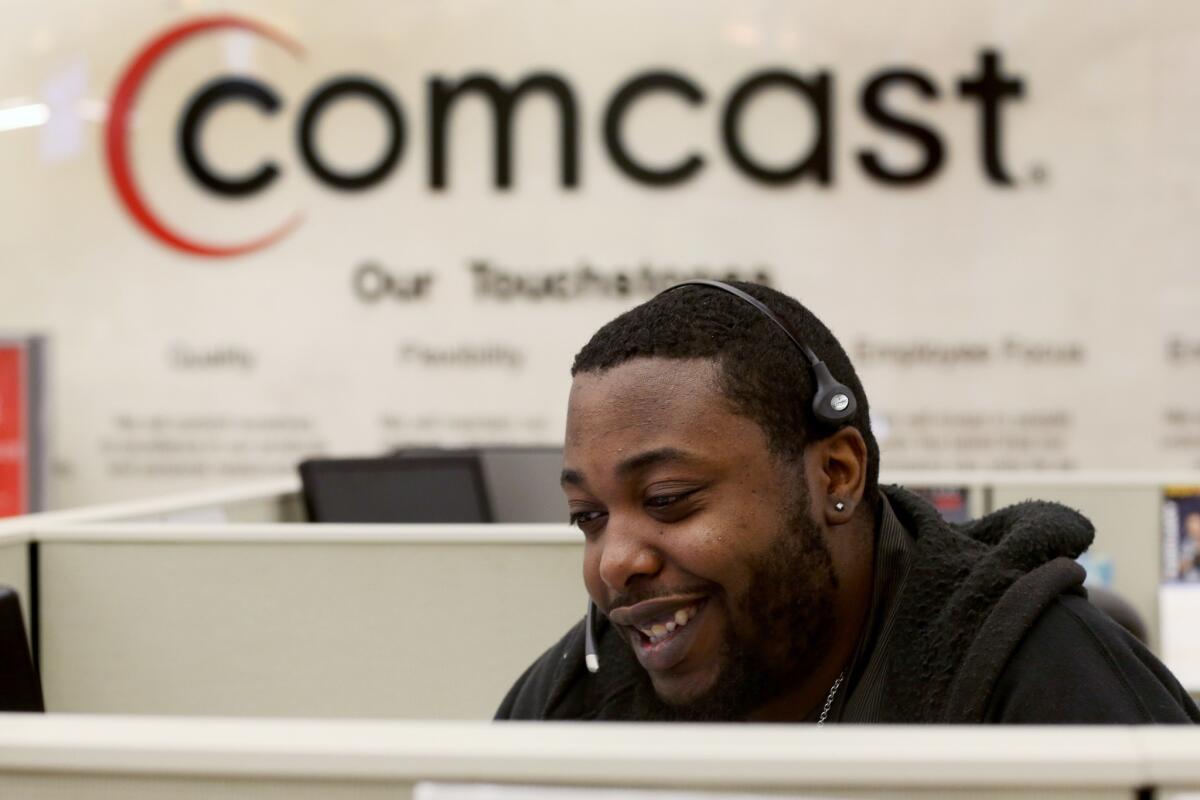Comcast buying Time Warner Cable, horror stories ensue

Can your cable or broadband service get any worse?
That’s the question that comes to mind when reading the doom-and-gloom coverage of Comcast’s $45-billion purchase of Time Warner Cable. One of the most common predictions from critics: the new company will push cable and broadband prices even higher than Comcast or Time Warner Cable have been able to do separately.
That’s because of the leverage Comcast will gain by acquiring Time Warner Cable. The combined company would hold about 30% of the pay-TV market (and roughly half of all customers served by a cable operator) and be the ISP for about a third of all U.S. broadband homes.
But those markets are not monopolies. They may not be wildly competitive -- the broadband market is basically a cable-telco duopoly -- but the merger won’t reduce the amount of competition, at all. Remember, Comcast and Time Warner Cable don’t go head-to-head anywhere; their networks serve separate communities. The new Comcast would thus be no more able to raise prices indiscriminately than the current version.
Yes, cable rates have climbed almost as fast as health insurance premiums. But there’s a good reason for cable operators to raise their rates at least some amount every year: the rising cost of programming.
With the cable industry slowly shedding subscribers and struggling to sign up young adults, Comcast has to be careful about how high its pay-TV prices go. In fact, one of the main rationales for the deal -- and the force driving some in the fragmented cable industry to call for radical consolidation -- is the need for more leverage when negotiating with broadcasters and popular cable networks over how much to pay for their programming. By holding down those fees, they should be able to hold down cable rates as well.
In theory.
In broadband, the rate increases have been less frequent but also harder to defend. Sure, cable operators are investing in new hardware and software to increase the capacity of their networks. But the cost to deliver bits of data has been steadily declining.
One change seems inevitable for Time Warner Cable customers if the merger goes through: the return of data caps. Time Warner experimented with tight, mandatory caps several years ago, only to abandon them in the face of consumer outrage. Undeterred by Time Warner’s experience, Comcast imposed a significantly higher cap -- 250 gigabytes per month -- as well as trying out several variations.
Now, however, Comcast seems committed to a cap of 300 GB per month, with an overage charge of $10 per extra 50 GB consumed. That cap, Comcast insists, is far, far above what the average customer users. My family is online constantly on multiple devices, and we’ve never hit AT&T’s 250 GB cap.
Still, as Stacey Higginbotham of Gigaom has argued, data caps are a poor way to reduce congestion online (because they apply even during times when usage is low) but a great way to deter innovation (by throwing barriers in the way of new, data-intensive applications).
I actually like the idea of making the heaviest Internet users pay the most for bandwidth, and ISPs kinda sorta do that today by offering different speed tiers at different prices. But over the years I’ve spent online, regardless of my ISP, I’ve yet to see one manage congestion effectively. Raise your hand if you’ve had an audio or video stream stutter, or watched a crystal clear video stream suddenly turn blotchy, when you’ve had the temerity to go online in the early evening. Yeah, I thought so.
Anyway, little good is likely to come from Comcast imposing data caps on its new customers. So if you’re looking for a legitimate reason to complain about the proposed merger, start there, not with some horror story about Comcast’s new-found pricing power, which the merger won’t change.
ALSO:
Don’t give up on the bullet train, California
Woody Allen vs. Dylan Farrow, art vs. scandal
Follow Jon Healey on Twitter @jcahealey and Google+
More to Read
A cure for the common opinion
Get thought-provoking perspectives with our weekly newsletter.
You may occasionally receive promotional content from the Los Angeles Times.







